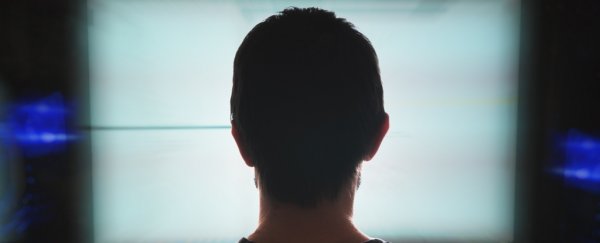From early on in the pandemic, conspiracy theories about COVID-19 have spread like wildfire, disseminating vast amounts of misinformation about the virus and vaccines, and tragically costing lives.
Now, a new study highlights some of the personal dangers of COVID conspiracy theories – showing how such beliefs can affect and predict people's behavior, potentially giving them greater exposure to the threat of infection, and more besides.
"Even if a conspiracy theory is extremely implausible according to logic or scientific evidence, if it seems real to a perceiver, it has a genuine impact on attitudes, emotions, and behavior," researchers explain in a new paper, led by first author and social psychologist Jan-Willem van Prooijen from Vrije Universiteit Amsterdam in the Netherlands.
This phenomenon – that conspiracy theories are consequential in the lives of true believers – has been demonstrated in many studies, showing that the way people think affects their behavior in various ways.
The link is alive and well in the age of the coronavirus, too, with research showing that COVID-19 conspiracy theories are tied to attitudes that might compromise public health, such as less support for physical distancing and restrictive measures, and less intention to get vaccinated.
Nonetheless, it's still not fully clear from existing research how belief in COVID-19 conspiracy theories relates to people's health and wellbeing in the context of the pandemic.
To explore this, van Prooijen and fellow researchers surveyed 5,745 participants in a panel weighted to provide a large, nationally representative sample of the Dutch population.
Early in the pandemic (April 2020), the cohort was asked a number of questions measuring their level of belief in COVID-19 conspiracy theories – including whether they thought the coronavirus was a bioweapon engineered by scientists, a conspiracy to take away citizens' rights, or a cover-up for the impending global economic crash.
Several months later, the same group was surveyed again, this time answering questions about whether they'd ever been tested for the virus, whether that test was positive or negative, and whether they'd ever breached COVID-19 regulations, among many others.
The results showed that belief in COVID-19 conspiracy theories prospectively predicted a decreased likelihood of getting tested for the virus – which the researchers had expected, given those participants were expected to feel less threatened by the virus overall (given their views on it).
However, the results also showed that the conspiracy theorist participants were more likely to have tested positive for the virus if they had undertaken a COVID-19 test, as compared to participants who didn't hold such beliefs.
Again, this outcome had been hypothesized by the researchers, on the basis that conspiracy theorists might be at greater risk of infection due to their beliefs about the virus, while simultaneously less likely to get asymptomatic testing.
Not all of the researchers' hypotheses were borne out by the data, but many were – including that people believing COVID-19 conspiracies were more likely to have received too many visitors in their home during COVID restrictions, and likelier to have visited overcrowded parties, bars, or restaurants.
In addition, conspiratorial thinkers were more likely to have lost employment and income during the pandemic, and the data suggested they were also more likely to experience social rejection, perhaps due to their views.
"Intolerance of conspiracy believers is consistent with the notion that publicly endorsing conspiracy beliefs is stigmatizing and can decrease people's social support network," the researchers write.
There are limits to what conclusions we can draw from this study, however. The researchers emphasize that their experiment can't show causality (about things like COVID-19 results, employment prospects, and people's social circles), as other, unmeasured factors could ultimately be responsible for the results seen in the data.
It's also worth noting that even though this is a large survey, it's still only a snapshot in time, and only of participants in the Netherlands – and amongst the cohort, those who expressed COVID-19 conspiracy beliefs were relatively few.
Still, despite those limitations, the researchers suggest there's still clearly something going on here – a phenomenon that suggests belief in COVID-19 conspiracies might ultimately pose a serious, even dangerous disadvantage to the individual.
"Believing conspiracy theories early in the pandemic predicts a range of health and well-being outcomes eight months later," the team writes.
"Conspiracy beliefs predict how well people cope with the challenges of a global pandemic, and therefore has substantial implications for private and public health, as well as perceivers' economic and social well-being."
The findings are reported in Psychological Medicine.
